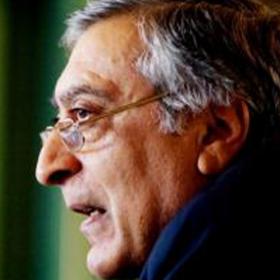
New Year's Predictions for India's Foreign Policy
Writing for India Today, EWI board member Kanwal Sibal discusses India’s upcoming foreign policy challenges in 2011.
“India’s core foreign policy challenges in 2011 will be no different than in 2010, but we enter the New Year with a somewhat strengthened diplomatic hand” Sibal predicts, pointing out that all P-5 countries visited India in 2010. Sibal writes that, as in 2010, India’s foreign policy interests will revolve around its relations with Pakistan and China, potential for permanent membership in the UNSC and continued economic growth.
One of the issues facing the India-Pakistan relationship is the continued territorial dispute over Kashmir. Sibal argues that until this issue is resolved, “the India-Pakistan dialogue is stalemated.”
For Sibal, the challenges facing the India-China relationship are both economic and territorial, beginning with the issue of border sharing in Kashmir. Sibal argues that China is using economic incentives to shift India’s focus away from Kashmir: “While keeping its political options toward India open, it seeks to disarm Indian resistance by shifting the focus to economic ties, for which it is mobilizing powerful Indian private sector interests.”
India has received considerable support for its membership in the UNSC, but this “will not get translated into concrete results any time soon,” Sibal writes, adding that how India conducts itself as a non-permanent member over the next few years will be critical.
Sibal predicts that India’s political influence will rise as the economy grows: “India, with its impressive growth rates, will continue to have an important voice in the G-20 in 2011.”
But in order to exercise more power abroad, says Sibal, India must continue to strengthen its internal governance: “We cannot control our external environment when the internal one seems adrift.”

